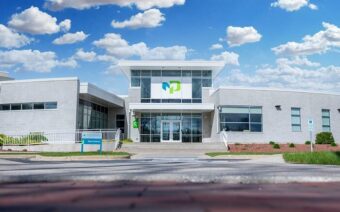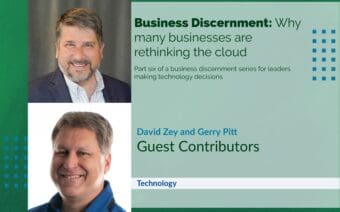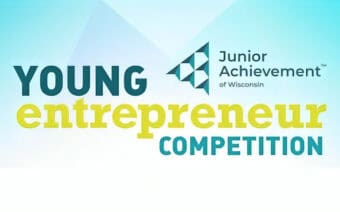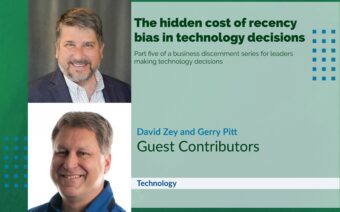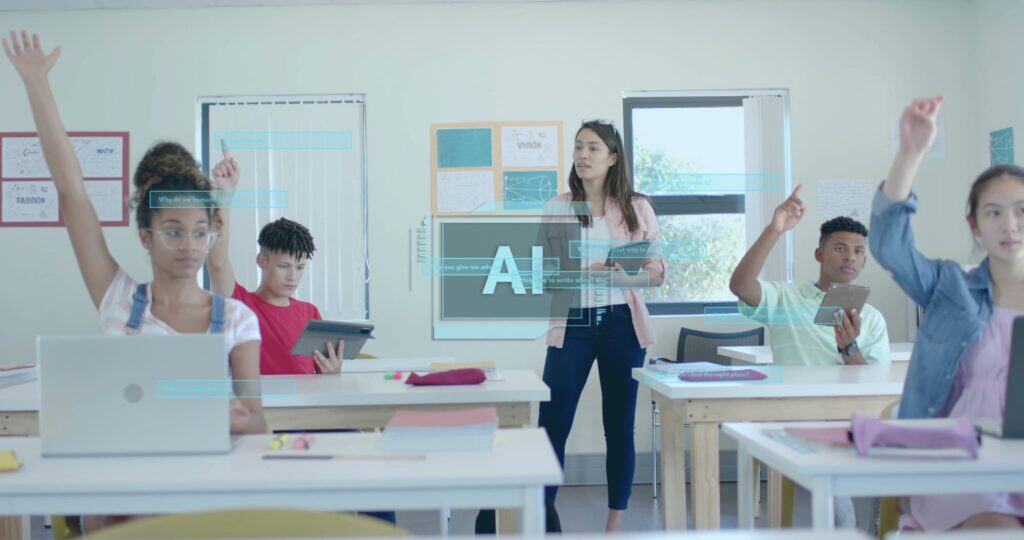
October 6, 2025
LUXEMBURG/CASCO – Scott Waldow – director of technology for the Luxemburg-Casco (L-C) School District – said change often drives one of two reactions: avoidance or embracement.
Once such driver, Waldow said, is artificial intelligence (AI) and the rapid changes related to it – which is generating both excitement and concern over its potential impact on the human experience, including how children learn.
Waldow said he has served as the district’s director of technology for more than a decade and has seen a lot of tech-related changes in education.
“[The onset of AI is] almost like internet 2.0 – like it’s the next iteration of the internet– [in terms of how it will affect learning],” he said.
With that in mind, the Luxemburg-Casco School District announced in a recent press release that it has chosen a proactive approach to implementing AI tools, viewing the technology as both permanent and potentially beneficial.
Empowering educators
After its digital learning team piloted a few different AI tools last year, Waldow said the district chose to launch MagicSchool Enterprise for the 2025-26 school year for staff and students in grades six through 12.
Using the MagicSchool program in the classroom, Waldow said, isn’t mandatory, with some teachers opting to take a “wait-and-see approach” to the program’s implementation.
Those who do choose to opt in, he said, have the freedom to use the tool to any degree they wish in the classroom.
“We have some who are ready to go, excited about it and others who are more apprehensive,” he said.
Superintendent Jo-Ellen Fairbanks said the district is motivated by the understanding that AI will only become more prevalent across industries, making it crucial to prepare students to use it responsibly and effectively
“The implementation of AI for student use prepares them for a future where this technology is everywhere,” she said. “It gives them critical skills in digital citizenship, responsible use and career readiness. These AI skills are becoming increasingly important in both higher education and the workforce.”
In a statement released in conjunction with its MagicSchool launch, the district cited research from the Wall Street Journal and Stanford University – which noted that while AI may eliminate jobs involving easily automated tasks, it has also led to employment growth in fields where AI enhances work, such as medical diagnoses.
According to magicschool.ai, some schools have experienced more than a 25% improvement in students meeting their literacy grade-level expectations, with more than six million teachers currently using the program.
At Luxemburg-Casco, Waldow said teacher training occurred over the summer, with the district choosing MagicSchool over other piloted programs partly because of the tool’s built-in safeguards.
“We really wanted to focus on how the student side of it works, and the guardrails it features help make sure the students are staying on task,” he said.

An example of how these guardrails work, Waldow said, is if a student is using a math tutor tool and starts asking the tool questions about another subject – it will not reply to those questions.
Moreover, Waldow said if it keeps getting asked, it flags the teacher – as they always have complete control over how the tool is used by students.
“With MagicSchool, the area for students where the students can interact with the AI is called ‘rooms,’” he said. “The teacher can lock the room, pause it or when a project is done, archive it.”
Through MagicSchool, Waldow said teachers also have control over when students can access a room.
“They can design the room to only focus on math, for example, so a student who’s trying to get answers on another assignment in another class cannot get help,” he said. “Each AI room is run by very specific instructions set by each teacher.”
Waldow said this approach ensures “that AI is being used as a support rather than as a shortcut.”
“It also can generate scaffolded assignments that require students to explain their reasoning, show work or apply knowledge in new contexts – which makes it harder to rely solely on AI for answers,” he said.
Waldow said teachers have access to more than 80 subject-specific tools with MagicSchool, including math, science and social studies.
With a significant portion of a teacher’s schedule occupied by grading assignments, preparing lesson rubrics, recording grades and other administrative tasks, Waldow said a key advantage of using these tools is that they free up teachers to dedicate more one-on-one time to students.
“With AI, we’re hoping to give [teachers] more time with students where they can have those important conversations and even just get to know them a little better,” he said.
An example of this, Sarah Monfils – library media specialist for the district’s high school and middle school – said, is vocabulary lessons, noting that MagicSchool saves a teacher’s time by creating differentiated word lists, generating practice activities that are engaging and adapting content to students’ individual reading levels.
Monfils said it can also provide instant feedback on student work, track progress and highlight which words or concepts need reteaching, allowing teachers to focus more on personalized support and deeper instruction.
Another example, Monfils said, is when a teacher creates a personalized AI tutor to help a student who is struggling with a particular math topic or lesson.
Furthermore, Monfils said AI allows lessons to focus more on real-world relevance and individual student interests by creating customized examples, problems and projects that reflect students’ hobbies, career aspirations and contemporary issues.
“We believe that if we can connect any topic with a student’s interests, it makes learning more engaging,” she said.
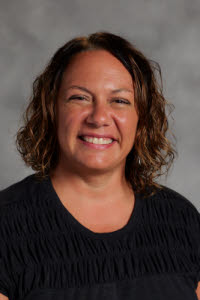
Monfils said it’s similar to the introduction of calculators in classrooms, when many feared students would never learn math fundamentals.
“Instead, over time, educators realized that they freed up time for deeper problem-solving and higher-order thinking,” she said. “Similarly, the introduction of technology raised fears of distraction or overreliance, but they became essential for research, collaboration and digital literacy.”
Monfils said she sees AI implementation in classrooms following a similar path.
“At first, it’s going to feel like a threat to core learning, but with intentional guidance it can shift from being a shortcut to becoming a tool that enhances inquiry, creativity and critical thinking,” she said. “The key will be in how teachers frame and scaffold its use to ensure AI supports learning goals rather than replacing them.”
Though increased classroom interaction and personalized support are seen as key drivers of student success, Waldow and Monfils said the use of AI in education is not without challenges.
“That is a common concern among ELA (English language arts) teachers that students would use the tool to write their essays, but it’s important to understand you’ll know right away,” Waldow said. “We’ve known these kids since Kindergarten, and a teacher knows when something is off.”
Guided, not generated
At the start of the school year, Waldow said students are given a handwritten, in-class writing prompt to establish a benchmark for evaluating their writing abilities
“Our biggest AI filter is the teacher,” he said. “People think there’s an AI filter out there that detects lifted work perfectly, but there really isn’t, at least not yet. I ran the Declaration of Independence through an AI detector and was told it was 98% generated by AI. So, for now, the best detector is the teacher themselves. They know the students and know their work.”
After an assignment is completed, Waldow said teachers can ask “deeper depth of knowledge questions” to ensure the student can explain the topic on their own during class and “prove they know what they’re talking about.”
For writing assignments, Waldow said MagicSchool helps students by reminding them of the steps involved with writing a paper and guiding them through the process, versus producing content.
Future-ready students
Preparing students for working with AI, Waldow said, is increasingly important, as “this moment right now is the worst AI is ever going to be because it’s constantly getting better.”
This preparation, he said, is necessary, because – at least with the current AI tools available – it’s clear AI isn’t perfect.
AI tools, Waldow said, can reflect bias from their data and may also produce “hallucinations,” or false information presented as fact.
Students, he said, need to be aware of this dynamic and learn how to verify AI-generated content – a topic teachers can tackle in the classroom.
Knowing how to address an AI tool – i.e., how to ask a question effectively – Waldow said, is also a learned skill teachers address.
“With AI, there is concern that the teacher-student relationship will be lost, but actually, it’s even more important,” he said. “Students need to know how to use AI ethically and honestly.”
Waldow said the district launched the initiative in part because educators have a responsibility to prepare students for their next step – whether that’s a two- or four-year college or the workforce – where effective use of AI will be expected.
“We’re going to do what we can to support our students for that next phase in life when they leave us,” he said.
Waldow said the school district is well aware of the privacy concerns surrounding digital tools and has put guidelines in place to prevent staff and students from entering personally identifiable information.
To further support its efforts, Waldow said the district has set up a dedicated website (which is accessible through the district’s website) on generative artificial intelligence that details how it is being used, policies for AI use in the classroom, ethics guidelines, privacy, generative AI citation and the role of the teacher and the MagicSchool platform.
Improving the student learning experience, Waldow said, is an ongoing goal of the Luxemburg-Casco School District – and the incorporation of AI tools into the curriculum, he said, should make a notable impact toward reaching that objective.
 Willow Creek Women’s Clinic announces merger with OakLeaf Clinics
Willow Creek Women’s Clinic announces merger with OakLeaf Clinics Bluff View Bank: A bank with a 142-year view
Bluff View Bank: A bank with a 142-year view

